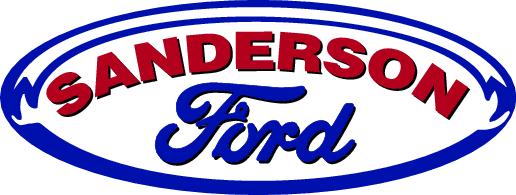Creating Your Own Personal Desert Print
Creating Your Own Personal Desert
Here's an overview of this week's four-hour homeowner radio broadcast
Creating Your Own Personal Desert (running time 7-11AM)
 |
Weekend Wake-Up Hour by Sanderson Ford

Sponsored by our friends at Sanderson Ford! |
|
Outdoor Living Hour - Urban Farming with Greg Peterson
|
|
 |
Homeowner Topic: Open LinesThe lines, email and text are open for your DIY questions! Lean the do's and don'ts of Recycling with City of Phoenix Recycling. We will be discussing clearing what can and can't be recycled
|
 |
Homeowner Topic: Creating Your Own Personal Desert If you love the desert and are a fan of eco friendly landscaping, then it's time to upgrade your yard to desert landscaping. Learn how to care for desert plants, watering cacti, shading your desert plants, proper soil to extend quality of plant life and more. |
7:00AM - The Arizona Hour! Katie Strumbo Of Go Conquer Fitness
Segment 1 (running time )
Rosie's daughter and personal trainer Katie Strumbo of Go Conquer Fitness joins (and taunts) Rosie's eating habits.
The APS rate change has caused many to wait until after 8pm to cool the house down and eat dinner. Eating late can lead to weight gain.
Katie has some eating suggestions for a busy lifestyle starting with veggies. Brocolli, brussel sprouts and more made in many ways.
Segment 2 (running time )
What to do about changing mindset about eating dinner at night in a warm house.
Katie suggests enjoying a cold meal at night like a salad. Or cooking extra over the weekend and having meals during the week.
The point is cooking at a time when the utility rate is cheaper or 'off peak'.
Katie talks about the Instant Pot with suggestion on how to use it.
Segment 3 (running time )
Its all comes down to pre-planning your meals. Using freezing methods.
Katie gives options to eating healthy.
Katie wants Rosie to try the Whole 30 diet. Explains a butter substitute called 'ghee'.
Segment 4 (running time )
Rosie and Jennifer talk about Bisbee, AZ. One of our Arizona Staycations from Sanderson Ford.
Register to win the next one HERE.
8:00AM - Agriscaping! Creating Edible Landscaping
Segment 1 (running time )
Justin Rohner joins Romey to discuss Agriscaping! Creating edible landscapes.
Justin came up with the idea out of necessity after 9/11.
How much space do you need to agriscape? Start with do you want to grow food for yourself and/or for profit in the local food economy?
Average cost of agriscape $7.82 per square foot.
Making money by producing a food harvest for local markets and restaurants.
Justin talks about design classes. You need to design and plan what your agriscape is going to do for you.
Segment 2 (running time )
Justin details the training classes with certified and licensed designers and installers.
Discussion of some of the high producing vegetables, citrus and plants for agriscaping.
Diversity is a key. Creating layers, right plant companions to keep pests away and make it easily harvestable, within arm reach.
Segment 3 (running time )
Insect and weed control discussion in agriscaping.
Starts versus seeds. Starter plants that have growth versus seeds planting from scratch.
Organic ways to fight off insects and rabbits with natural scents and plants to deter them.
Scat from coyotes and cats are not good for agriscaping.
On site compost piles to add nutrients to your agriscape.
Discussion of water consumption. Regular, rain and gray water usage.
Agriscaping also can includes productive pets like chickens. Help with composting too!
Segment 4 (running time )
Discussion of aquaponic ponds for fish like tilapia and fresh water prawns.
Find more info on Agriscaping.
9:00AM - Recycling With City Of Phoenix Recycling
Segment 1 (running time )
Brenda and Lucas of City Of Phoenix Recycling discuss the recycling program and educate what can and cannot be recycled in the home bins.
Plastic bags CANNOT be put in the recycling bins. You can recycle them at grocery store containers.
Plastic bags choke the machinery at the recycling centers and shut down the facility.
Shreaded document paper makes great compost. Can be recycled too.
4 basic recycle materials are paper, plastics, glass and metal. They go into detail about these.
Those numbers at the bottom of the plastic are called 'resin codes'.
Video for TOP 10 IN THE BIN
Segment 2 (running time )
Styrofoam, electronics, and batteries cannot be put in your recycle bin.
They do check recycle bins and tag them with items that aren't allowed as a reminder to the household.
Tossing anything you're not sure of in the bin costs the city a lot of money.
Segment 3 (running time )
Update of the current participation in the recycling program since its inception.
How much is going to the landfill.
Goal since 2013 is to reduce 40% of landfill waste by 2020.
Working on a pilot program for composting.
Explains the process when recycled materials get to the facility and sold as revenue to offset costs.
The proper way to dispose of plastic water bottles in recycle bins. It must include the cap!
Segment 4 (running time )
Recycling the right items. If you're in doubt, toss it out.
Discussion of the Resource Innovation Campus. Example is turning palm frons into cattle food.
There are free tours of the recycling facility to learn plenty about recycling.
10:00AM - Creating Your Personal Desert
Segment 1 (running time )
Known for some incredible work integrating hardscape, plant species and lighting.
Blending philosophy with landscaping producing an artistic look.
They grow their own plants and purchase larger plants/cactus that are salvaged from the area.
How they approach their customer base with the expectations they're looking for.
Segment 2 (running time )
Besides landscape design and install, they offer maintenance service. Some parts of the landscape grow faster than others. Plus lighting for nightscaping.
Segment 3 (running time )
More discussion on the hardscape. A major part of layering features. Their process is different from an artistic point of view. And don't use bubble plans.
How they determine the right focal points in a project.
One of the best jobs they've been involved in. Discussion of The Carefree Sundial.
How they use bolders and other rock in their designs.
How they approach a design involving a pool.
Segment 4 (running time )
Discussion of the irrigation technology used in their landscaping.
Home landscaping has been given more attention to home builders adding value to the property.
They talk about their private nursery where they grow plant materials for their landscape which is unique for a landscaping company.


